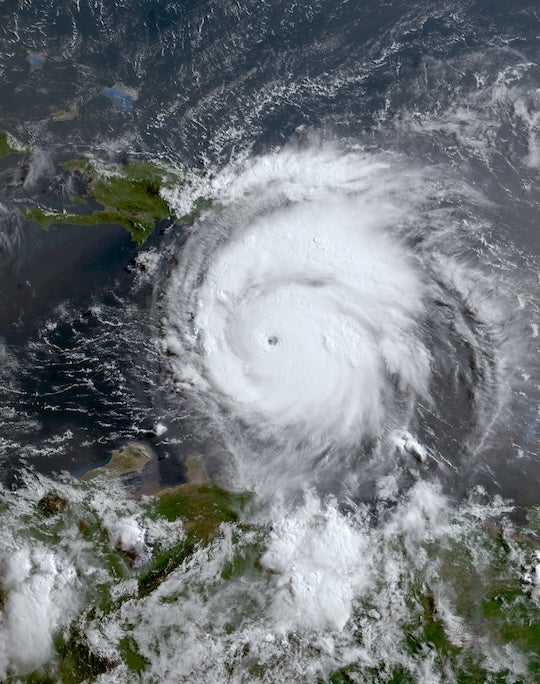In the wake of Hurricane Beryl, Rice University experts are available to discuss the storm and its impact:

Rice’s Herman Brown Professor of Engineering Philip Bedient serves as director of the Severe Storm Prediction, Education and Evacuation from Disaster (SSPEED) Center, and he is the designer of the Rice/TMC Flood Alert System (FAS5) and Houston’s FIRST system . Bedient and his team have designed the Galveston Bay Park Plan, a multifunctional approach to providing surge protection, recreational opportunities and enhanced environmental conditions for the Houston Ship Channel and surrounding areas. Bedient can discuss flooding issues that arise from tropical depressions, hurricanes and severe storms. He authored “Lessons from Hurricane Ike,” covering its nearly $25 billion in damages, and was Rice’s most-cited Hurricane Harvey expert in 2017. He also can speak to the effects of urban development practices and protection strategies for the region.
Jim Blackburn is co-director of Rice’s SSPEED Center, a faculty scholar at the Baker Institute for Public Policy and a professor in the practice of environmental law in Rice’s Department of Civil and Environmental Engineering. He can speak about the impact that climate change has had on storm and flood risks. Blackburn also can address the environmental and economic sustainability of regional hurricane protection proposals, including structural options for dikes, levees and gates in and around Galveston Bay and the use of coastal wetlands, prairies and carbon credits to implement nature-based engineering solutions. Among other issues, Blackburn is particularly focused on rapid intensification of hurricanes as a major risk to the Texas coast and equity issues in the provision of flood protection in the Houston region.
Daniel Cohan is an environmental engineer who researches air pollution, an associate professor of civil and environmental engineering and a faculty scholar at Rice’s Baker Institute. His research specializes in the development of atmospheric models and their application to air quality management, energy policy and health studies. He authored the 2022 book “ Confronting Climate Gridlock .” He can speak about issues related to the power grid or intensity and track of the hurricane.
James Doss-Gollin , an assistant professor of civil and environmental engineering, researches methods to quantify and manage risks from climate extremes in a changing climate. His approach combines statistical modeling, machine learning, operations research techniques and a physics-based understanding of the climate system to address impactful and policy-relevant challenges related to three key issues: extreme rainfall in a changing climate; predictions of urban flooding and its impacts; and temperature-driven risks to the electricity grid. Doss-Gollin also works on incorporating these findings into adaptive strategies for resilient infrastructure planning with a particular emphasis on the role of decentralized systems in enhancing the resilience of water and flood management.
Ed Emmett , a fellow in energy and transportation policy at Rice’s Baker Institute, was county judge of Harris County during Harvey and served as director of Homeland Security and Emergency Management. As the chief executive of Houston’s county, Emmett was one of the most prominent government leaders tasked with steering the community through the greatest disaster in the city’s history. He can speak about what is required to make a community resilient to natural and human-caused disasters.
Mark Jones, professor of political science and fellow in political science at Rice’s Baker Institute, can discuss government reaction to storms and the politics in play as well as public opinion on policies related to hurricanes and flooding.
Ken Medlock is the James A. Baker, III, and Susan G. Baker Fellow in Energy and Resource Economics at the Baker Institute and the senior director of its Center for Energy Studies. He is also the director of the Master of Energy Economics program and holds adjunct professor appointments in the Department of Economics and the Department of Civil and Environmental Engineering at Rice. He is an expert in the energy economics field and has published numerous scholarly articles in his primary areas of interest, which include: natural gas markets, electricity markets, energy commodity price relationships, transportation, national oil company behavior, economic development and energy demand, energy use and the environment and various energy transitions topics ranging from engineered and nature-based carbon capture to hydrogen to the economic drivers of technology adoption. He has testified multiple times on Capitol Hill on U.S. energy exports and electricity market evolution, has spoken at OPEC and is frequently asked to speak about global and domestic energy issues.
To schedule an interview with any of the experts, contact Chris Stipes, executive director of news and media relations, at cs216@rice.edu or Amy McCaig, senior media relations specialist at Rice, at amym@rice.edu.

